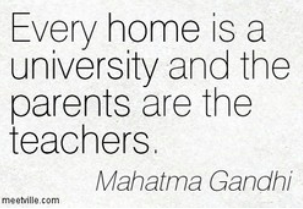As a child, I mostly loved school and learning. I also noticed both the positive and not-so-positive effects school had on my siblings. I decided that I wanted to be a teacher at an early age. Then when it came time to teach, I landed a job in a wealthy suburb of Boston. I still teach in that town today, 34 years later.
Teaching in the wealthy suburb was as an education for me. I learned so much from the many families and educators I worked with. Until that time, I didn't realize what so many families do to support their children's education--truly, for the most part, the most successful students had a great advantage thanks to parental investment and, as Malcolm Gladwell discusses in his book, Outliers, concerted cultivation. Concerted cultivation is basically the parental efforts to know their children well and to match that knowledge with all kinds of positive activities that help their children become the best of whom they are.
I valued what I learned and used concerted cultivation when raising my own children. I really tried to know who they are well and then match that knowledge with all kinds of activities, coaching, and care. While no parenting is perfect, I do believe that the process of concerted cultivation works to a child's advantage emotionally, physically, socially, and academically.
So, in general, when parents invest in their children's education by teaming with teachers, doing their part at home, and spending quality time coaching and nurturing their children forward, those children succeed more with respect to self confidence, self advocacy, self knowledge, and good living. When parents simply leave all things education up to schools, typically there is not as much success. This is not because educators are not invested in your children, but because to nurture a child well demands the investment of all people involved with the child especially parents and other close family members. Teachers work with large numbers of students--they typically can't provide the one-to-one support that a family member can provide or support.
To answer my initial question, What is a parents' role with regard to their children's education? My answer includes the following:
- Work with your child's teachers, coaches, and tutors in a positive, collaborative way.
- Make time to talk with your child, know your child well, and support your child's interests, challenges, and gifts.
- Create a positive living/learning routine for your child.
- Build a strong family culture based on your values, support for one another, and dreams and vision for the future.
- Build your child's responsibility with chores, helping others, and decision making.
- When your child presents challenges, seek the answers via research, reading, expert help sooner than later.
Too often families give up on children, not because they don't love those children, but instead because they really don't know how important it is to be apart of their child's lives in meaningful, helpful ways.
